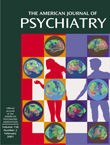Characteristics of Female Psychiatrists
Abstract
OBJECTIVE: This study assessed within-gender differences between psychiatrists and other physicians by using data taken from a large national sample of U.S. female physicians. METHOD: The authors used data from the Women Physicians’ Health Study, a large, national questionnaire-based survey conducted in 1993–1994, to compare characteristics of female psychiatrists (N=570) with those of other female physicians (N=3,875). RESULTS: Psychiatrists were older, in poorer health, less likely to be married, more likely to be current or ex-smokers, and more likely to be politically liberal than were the other female physicians. Psychiatrists were somewhat (although not necessarily significantly) more likely than the other female physicians to report having had personal or family histories of various psychiatric disorders. Psychiatrists were more likely to have a solo practice and less likely to be in a group practice. They worked fewer hours than the other female physicians but reported comparable hourly incomes. Psychiatrists did not differ from the other female physicians in perceived work amount, work stress, work control, or career satisfaction. Their satisfaction with their specialty was, however, greater than that of the other female physicians. For nearly all of the 14 preventive health care counseling practices examined, the amount of preventive counseling psychiatrists reported performing, the clinical relevance they ascribed to those practices, their self-confidence in performing the practices, and the amount of training they reported receiving in preventive counseling practices was significantly lower than that of primary care practitioners and lower than or comparable to that of other specialists. CONCLUSIONS: Female psychiatrists significantly differ from other female physicians with regard to a number of personal and professional dimensions.



